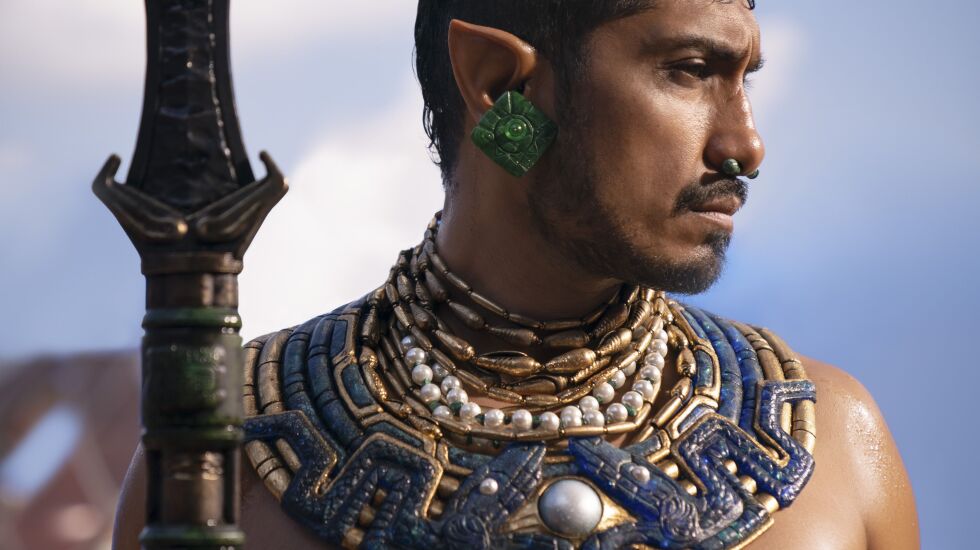
Already widely acclaimed for his role of Namor of Kukulkán in the Oscar-winning “Black Panther: Wakanda Forever,” Mexican actor Tenoch Huerta is receiving growing recognition for his anti-racism media campaign.
Despite public criticism for addressing the taboo subject, the actor remains focused on his projects and maintaining his activist stance.
In April, Huerta attended the Chicago Comic & Entertainment Expo, an event that brings together comics and anime fans and is considered the largest pop culture convention in the Midwest.

In an interview with La Voz Chicago, Huerta spoke of the representation of Brown men in film, an identity he embraces as a social activist and through his character in “Wakanda Forever.”
“[People] came and welcomed me in a wonderful way. We had people tell us that they drove two, eight or 10 hours to come. Imagine what an honor it is to me that people would do that!” he said of his experience at C2E2.
Huerta had not been to Chicago since 2012, when he was invited to the first and only edition of the Mexican Film Festival of the Americas, where he received an award for best actor.
Huerta is proud of his character, Namor, one that was tailored for a brown-skinned actor with Indigenous Mexican features.
“Regarding the representation of ourselves on screen, it’s not just about seeing ourselves, but how we see ourselves,” he said.
“To suddenly see a Latin American, Maya, dark-skinned compadre, who is a ‘tlatoani’ and a superhero, is a wonderful representation. It’s not just about being represented, but how they represent us. And that’s what’s important,” the actor emphasized.
The relevance and effect of his role has meaning for Mexicans and Latinos who migrate to the United States, but also for the majority of Mexicans in Mexico — a country where racism and classism are ongoing issues.
It’s a conversation that the actor has advanced via his social media platforms and other media projects, and he says he has learned a lot from the struggle of the African American community in the U.S.
“In Mexico there is still a lot of work to do. The conversation about representation is just beginning. Here in the United States it is a subject that is more advanced and digested,” Huerta said. “The opportunity came from here, but I hope that soon in Mexico we can do things that dignify and represent [Mexicans] from the side of who’s telling the story. In Mexico it is the same elite, the same group, that tells the stories.”
In the U.S., the economic power of the Latino community is seen at the box office, but not represented on screen, something that the actor says can be traced back to the privileged class who first arrived in the United States and replicated the same narrative and attitudes from Mexico.
“Most people [in Mexico] have other origins, phenotypes and histories, which are not those of the elite,” he said.
The topic of racial/ethnic categorization of “Hispanic” in the United States, is another issue Huerta is willing to discuss. The cultural term continues to be debated, since many communities would rather identify with their nationalities or other terms such as “Latino.”
Some argue that “Hispanic” echoes the caste system that was imposed during the colonization of Mexico and Latin America, a notion with which the actor concurs.
“If anything, Hispanic only serves to hide the privileges [of the white elite], the oppression [of brown Mexicans], and it puts us all under the same umbrella,” he said.
“This is a conversation that the Latin American community in the United States has to have. The Black community is ahead of the Latino community in this, but that conversation is having a ripple effect,” he continued.
Huerta’s next project is a starring role in the Netflix series “El Elegido.”
Will there be a Namor/Kukulkán “Wakanda” spinoff down the road?
“I really have no idea, but when they call me, I’ll be there,” Huerta said.







